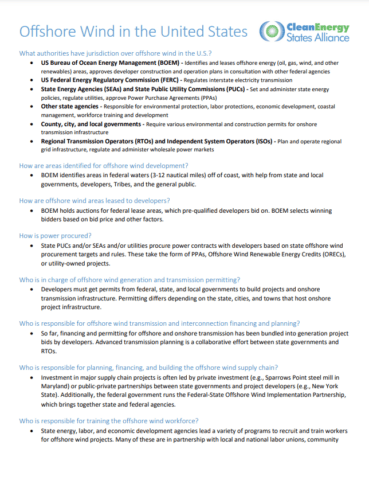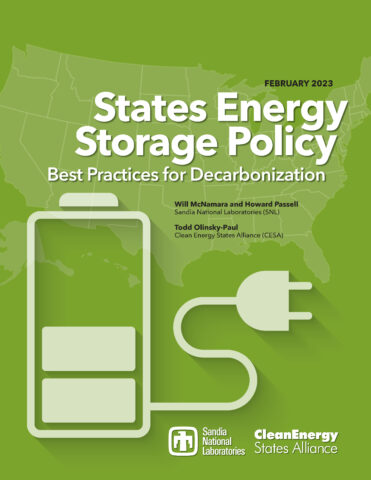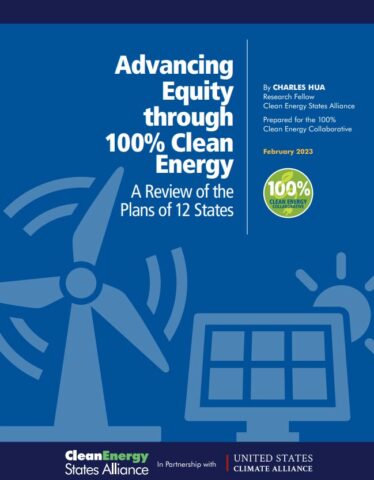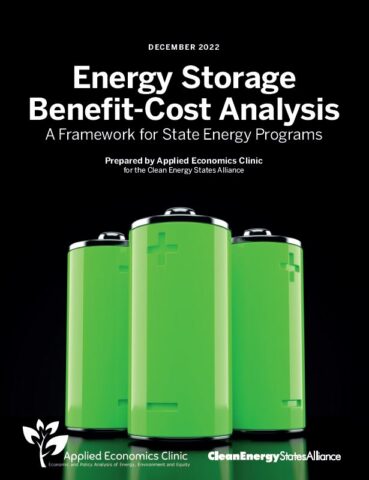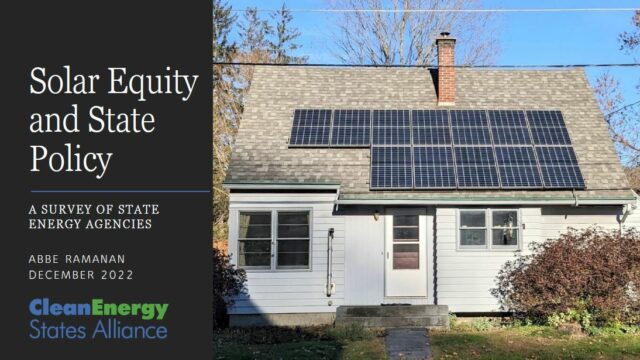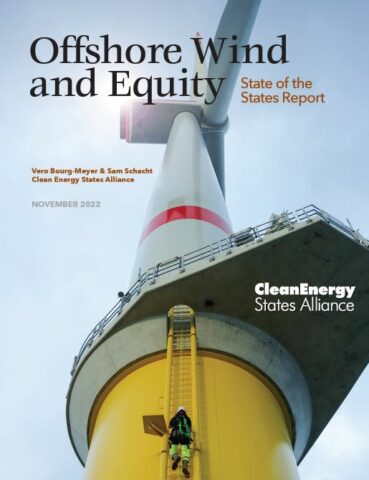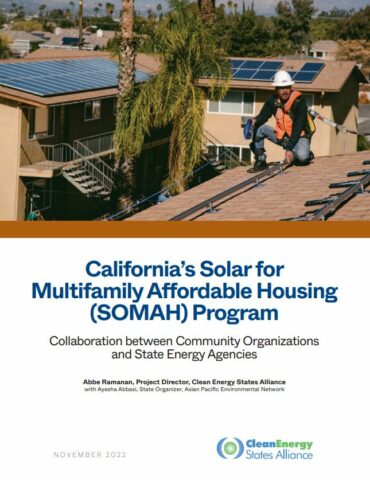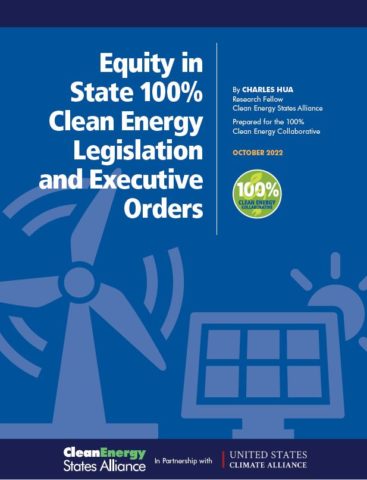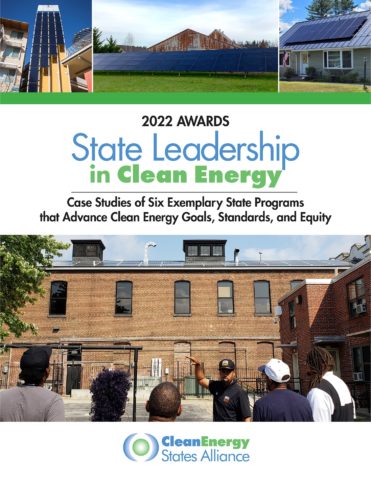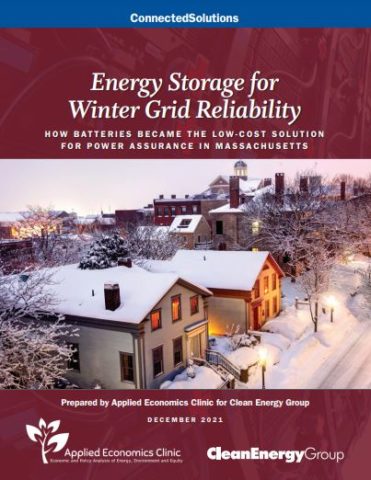Resource Archive - Report
SEARCH RESOURCES
You can also search by author name.
RESOURCE TYPES
RESOURCE TOPICS
RESOURCE PROJECTS
RESOURCE YEARS
This two-page primer provides an overview of offshore wind development in the United States. It outlines major decision-making entities and responsible parties at various points throughout the development process. Topics covered include siting, financing, power procurement, workforce development, and more.
This report highlights best practices, identifies barriers, and underscores the urgent need to expand state energy storage policymaking to support decarbonization in the US.
This report outlines how different states view the equity implications of climate impacts, and what they are proposing for mitigation solutions, planning processes, and implementation processes. It identifies common themes and best practices, and it presents a selection of relevant case studies and examples.
This report is intended as a guide for state energy agencies preparing to conduct cost-effectiveness evaluation for battery storage. It presents a benefit-cost analysis framework for battery storage and attempts to address many of the uncertainties state energy agencies may encounter.
This Clean Energy States Alliance report explores how SEAs are currently working with CBOs on equitable solar policy, and the barriers to successfully implement these policies. The report is based on a survey of SEAs conducted by CESA in conjunction with Energy Trust of Oregon and Kim Wolske of the University of Chicago.
This report provides an overview of how states with offshore wind potential have begun to include and operationalize principles of equity in their offshore wind policies and related economic development programs.
California’s Solar for Multifamily Affordable Housing program is an excellent example of how state energy agencies and community-based organizations can work together to create more impactful and sustainable solar programs that provide the maximum benefit to environmental justice communities.
This report identifies, collects, and summarizes all the equity-related provisions that have been included in the legislation and executive orders that have established 100% clean energy goals in 20 states and the District of Columbia.
This report presents case studies of the six recipients of the 2022 State Leadership in Clean Energy Awards.
Winter electric peaking capacity services are currently undervalued in the Massachusetts programs that provide battery customers with performance payments to supply power back to the grid at times of high demand.

